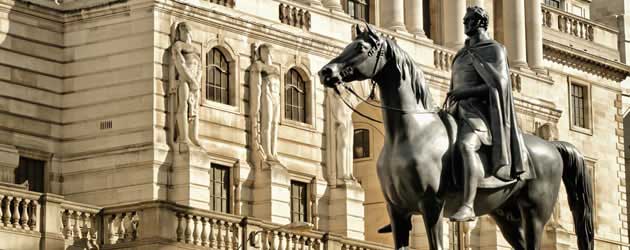 The Pound was able to end the week close to a two-week high against the US Dollar thanks to investors forming a fairly upbeat assessment of the UK’s economic recovery.
The Pound was able to end the week close to a two-week high against the US Dollar thanks to investors forming a fairly upbeat assessment of the UK’s economic recovery.
Friday’s encouraging consumer confidence and house price data for the UK helped push Sterling higher while comments issued by a Bank of England official indicated that any debate regarding the timeline for increasing interest rates would be ‘healthy’ and natural.
BoE policy maker Spencer Dale was quoted as saying; ‘as the economy keeps growing and keeps developing, at some point different people will be thinking it’s more or less close to raising interest rates. It’ll be quite natural then to have greater dissent […] it’ll be a healthy thing.’
The gauge of UK consumer confidence came in at -7 in February, unchanged from the previous month’s over five-year high and in line with economists’ estimates.
Meanwhile a Nationwide house price report showed that the value of UK homes rose by more than anticipated this month, climbing 0.6 per cent in February month-on-month following a positively revised gain of 0.8 per cent in January.
As the Pound edged higher against the ‘Greenback’ on Friday and held its own against a supported Euro, currency advisor Harry Adams observed; ‘With any sort of confidence that starts to build, again being buoyed by the property market, that gives the Pound a lift. More rhetoric coming out of the Bank of England is gearing everyone up that UK interest rates will rise. The more rhetoric that comes up the further the Pound pushes.’
Sterling has been enjoying a more bullish relationship with several of its currency counterparts ever since the BoE revised its forward guidance policy, but the British asset could experience considerable movement over the course of next week.
On Thursday the BoE will be delivering its latest rate decision. Although economists believe that interest rates will be left unaltered and the level of asset purchases unchanged, the tone of any accompanying statements will be heavily scrutinised in light of the fact that January’s employment figures fell slightly short of forecasts.
Other UK data to focus on next week includes the nation’s services/manufacturing/construction PMI figures.
If the measures show that the three main branches of the UK economy continued to enjoy reasonable expansion in February the Pound could be boosted.
UK mortgage approvals figures, due out on Monday, and Friday’s 12 month inflation forecast may also be responsible for Sterling volatility.
Elsewhere, market movement will be driven by the European Central Bank and Reserve Bank of Australia rate decisions as well as Chinese data.
Investors should also be aware that any adverse developments in the Ukraine are liable to trigger a bout of risk aversion.
Pound (GBP) Exchange Rates
[table width=”100%” colwidth=”50|50|50|50|50″ colalign=”left|left|left|left|left”]
Currency, ,Currency,Rate ,
Pound Sterling, ,US Dollar,1.6717 ,
,US Dollar,1.6717 ,
Pound Sterling, ,Euro,1.2118,
,Euro,1.2118,
Pound Sterling, ,Australian Dollar,1.8714,
,Australian Dollar,1.8714,
Pound Sterling, ,New Zealand Dollar,1.9860 ,
,New Zealand Dollar,1.9860 ,
US Dollar, ,Pound Sterling,0.5981,
,Pound Sterling,0.5981,
Euro, ,Pound Sterling,0.8252,
,Pound Sterling,0.8252,
Australian Dollar, ,Pound Sterling,0.5359,
,Pound Sterling,0.5359,
New Zealand Dollar, ,Pound Sterling,0.5039,
,Pound Sterling,0.5039,
[/table]

Comments are closed.